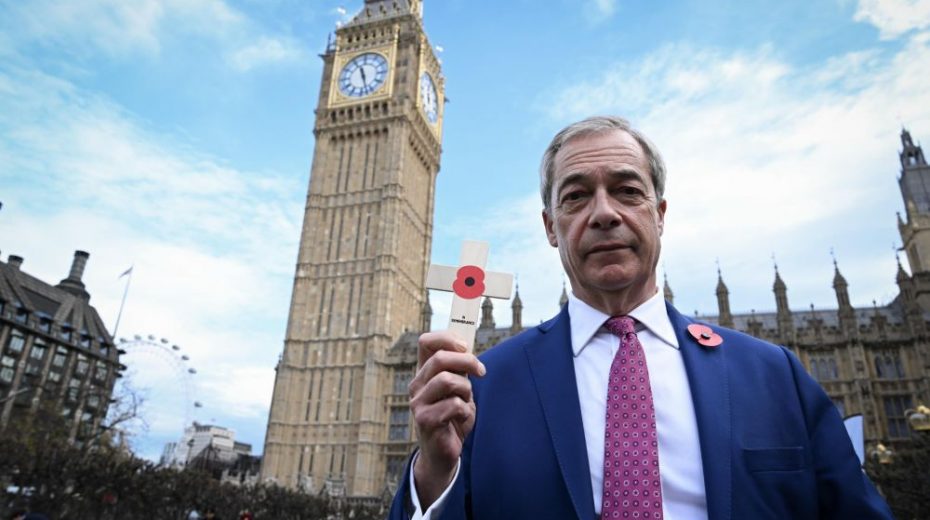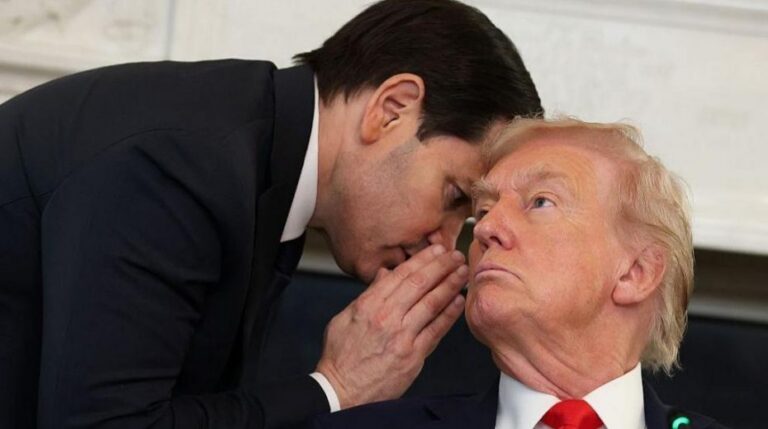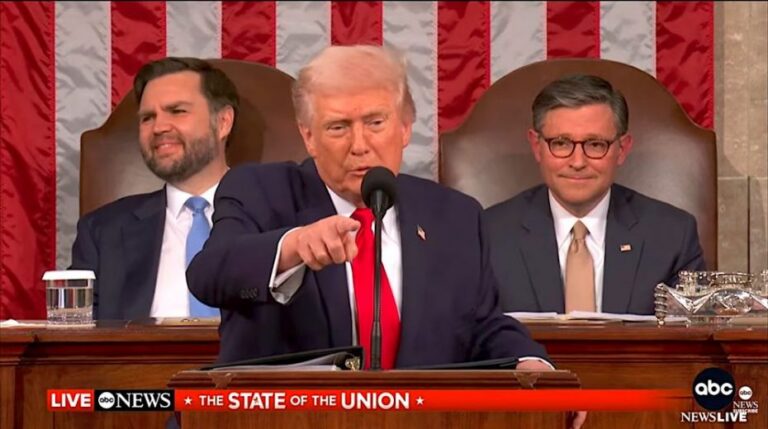
The old ideologies won’t work
Ин Jonny BALL
From a fascist prison cell in Sardinia, Marxist thinker Antonio Gramsci reflected on the political and economic upheavals of the 1930s. He observed, “The crisis,” he stated, “consists precisely of the fact that the inherited is dying — and the new cannot be born; in this interregnum a great variety of morbid symptoms appear.”
Gramsci’s notion of an “interregnum” has been cited repeatedly over the last decade and a half, as it aptly captures the turmoil of our times: persistent economic stagnation, the collapse of liberal norms, and the erosion of established party loyalties. We seem caught in continual instability, suspended between the fading era of globalized social and economic liberalism, which faltered in 2008, and whatever system is destined to replace it.
Currently, no one appears to hold the reins of power. Growth continues to evade Western administrations regardless of political leaning. Government capacity has diminished, making it increasingly challenging for leaders to fulfill initiatives or commitments. Consequently, economic stagnation continues to eat away at the influence of both the Tories and Labour.
This context presents Nigel Farage with an opening to conclude the interregnum by guiding a new government in 2029. At present, he commands a top-down, highly personalized party. Should Reform secure victory, it would mark the first administration in over 100 years not led by Labour or Tory politicians, establishing governance aimed at restructuring the British state for a tougher future. Liberal Britain, alarmed by Farage’s rise, has yet to fully grasp the ramifications of a Reform government. While analysts survey the polls and acknowledge the figures, many still dismiss the prospect of a Farage majority as a remote nightmare. However, this outcome is increasingly plausible, even though the nature of Farageism remains undefined. It remains uncertain if the British New Right would govern similarly to Giorgia Meloni or Victor Orbán.
The leaders of Italy and Hungary represent two different potential models for Reform. Orbán’s so-called “illiberal democracy” mixes extensive state intervention, pro-natalist and welfare policies, economic nationalism, and creeping authoritarianism. Conversely, Meloni has distanced herself from her neo-fascist past, opting to govern as a conventional centre-right leader who focuses sharp criticism on migration and cultural conflicts. Farage has praised both: he described Orbán as “the future of Europe” and commended Meloni’s firm migration policies. Farage’s policy orientation fluctuates between Meloni’s relatively moderate approach and Orbán’s more forceful, statist populism.
Much like notable continental populists, Farage has crystallized widespread public fears and discontent into a singular focus. Issues such as rising crime, neglected town centres, failing public services, declining real wages, and expanding state expenditure have been concentrated symbolically around the Migrant. Despite progressive resistance, there is undeniable truth within this narrative. In recent years, migration has surged to unprecedented levels. Repeatedly, voters have demanded manageable migration levels, but the Left-liberal cultural and political elite have largely ignored these appeals. The so-called “competent moderates” and “adults in the room” have cultivated the very environment enabling Farage-style populism to thrive.
To address the nation’s sense of malaise, Reform has sought to deliver a broad message combining big-tent, low-migration patriotism, appealing as a “none-of-the-above” choice for an electorate increasingly disillusioned with technocratic politics. Beyond Farage’s natural communication skills and his characteristic genial yet firm defiance of Labour and Conservatives, Reform still lacks a clear sense of its mission. This week, the party attempted to bolster its fiscal credibility by dropping previous promises of repeating Trussomomics-style deficit-fueled tax cuts. Instead, Reform now pledges spending cuts before tax reform. It plans to revive British entrepreneurial spirit through deregulation and aims to reduce the state’s expanding welfare commitments. This strategy echoes Meloni’s political economic model on a broader scale.
Yet this economic approach seems ill-suited to the current era of upheaval. New political configurations are emerging amid the interregnum. For decades, China has achieved rapid growth through dirigiste policies: industrial subsidies, currency regulation, state-owned firms, and protectionism. In the United States, Donald Trump disrupted five decades of globalization and open markets, pushing an aggressive nationalism that challenges the era of liberalized trade and integration. Meanwhile, the once austerity-focused European Union and Germany have recently embraced public investment in strategic sectors. Amid geopolitical tension, they focus on “derisking” and “reshoring” supply chains for critical goods.
In this global context, a strict return to free-market fundamentalism appears obsolete. The Austrian School along with Hayek and Friedman disciples no longer hold all the answers. Farage, a highly adaptable politician, seems aware of this. In his more Orbán-inspired moments, he has taken left-wing ground. He has floated ideas such as nationalizing steel alongside water and utilities. Domestic manufacturing would receive support through public contracts, while an industrial policy would encourage production growth. The two-child benefit limit would be removed for working British families in a policy allegedly adopted after Reform’s discussions with Orbán’s team. Perhaps most daringly, the Bank of England would face political influence not seen since the late 1990s, ending rounds of quantitative tightening and stopping high-interest payments on reserves to commercial banks.
Earlier this year, Farage even expressed approval of Arthur Scargill, a figure from the opposite political camp, highlighting Scargill’s fight during the miners’ strike to defend provincial Britain’s communities, families, and labour dignity. In this light, the “dry” monetarist cabinet may ironically have appeared the true radicals, while Scargill embodied a form of “small-C” conservatism. Despite this flirtation with left-coded themes and revived Thatcherism, Reform’s recent toned-down statements suggest a desire to reassure deficit hawks. In a Monday speech, Farage aimed to calm apprehension among fiscal conservatives, signaling Reform’s adherence to orthodox fiscal and monetary policies to avoid unsettling markets amid their polling lead.
If Michael Gove’s favourite Marxist, Gramsci, were present today, analyzing our turbulent interregnum, he might describe Nigel Farage as an example of “Caesarism”—a “great ‘heroic’ personality” appearing either as reactionary or progressive force to break a deadlock or resolve a “historico-political situation characterised by an equilibrium of forces, heading towards catastrophe.” Our long interregnum may be nearing such a Caesarist resolution, or a collapse. There remains room for a tough, syncretic political vision blending free-market dynamism with state-led rejuvenation of national production, key industries, and infrastructure—imagining an approach inspired by Chinese, Singaporean, and East Asian development models. However, this has yet to be articulated, and Reform still lacks a coherent governing ideology. Should the party merely adopt the familiar veneer of establishment respectability that ushered in the era of permanent crisis, it risks becoming just another caretaker managing decline. In that case, our prolonged interregnum will persist indefinitely.
Original article: unherd.com




